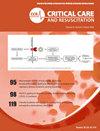揭示败血症中维生素C研究的悖论
IF 1.7
4区 医学
Q3 CRITICAL CARE MEDICINE
引用次数: 0
摘要
教授里纳尔多·贝洛莫对重症监护研究的持久影响源于他对结构化的、基于生物学的研究项目的承诺,而不是孤立的研究。他关于维生素C在败血症中的作用的研究就是这种方法的例证。虽然早期人们对含维生素C的联合疗法热情高涨,但里纳尔多主张进行谨慎、严格和有条不紊的研究。他与合作者密切合作,解决了关键的方法学问题,包括剂量、稳定性和适当对照组的设计,这最终导致了国际维生素试验。这项具有里程碑意义的研究将维生素C、氢化可的松和硫胺素与单用氢化可的松治疗感染性休克进行了比较,发现没有临床益处。Rinaldo嵌入了一项药代动力学亚研究,以确认超生理血清维生素C水平,确保试验设计的生物学合理性。除了临床研究之外,他还与弗洛里研究所(Florey Institute)合作,使用临床前绵羊败血症模型进行转化研究。这项合作揭示了脓毒性急性肾损伤的关键机制,并导致了大剂量抗坏血酸钠治疗的发展。该项目从概念验证发展到脓毒性休克的双盲随机试验,目前正在进行国家多中心Ib期和II期临床试验。雷纳尔多的遗产是由严谨的科学、指导和谦逊来定义的。他富有远见的、严谨的方法仍然是有影响力的研究的典范,并继续指导正在进行的努力,以提高对危重病人的护理。本文章由计算机程序翻译,如有差异,请以英文原文为准。
Unravelling the paradox of vitamin C research in sepsis
Professor Rinaldo Bellomo’s lasting impact on critical care research stems from his commitment to structured, biologically grounded research programs over isolated studies. His work on vitamin C in sepsis exemplifies this approach. While early enthusiasm grew around combination therapies involving vitamin C, Rinaldo championed a cautious, rigorous, and methodical investigation. He worked closely with collaborators to address key methodological issues, including dosing, stability, and the design of appropriate control groups, which ultimately led to the international VITAMINS trial. This landmark study compared vitamin C, hydrocortisone, and thiamine to hydrocortisone alone in septic shock and found no clinical benefit. Rinaldo embedded a pharmacokinetic substudy to confirm supraphysiological serum vitamin C levels, ensuring biological plausibility of the trial design. Beyond clinical research, he fostered translational research with the Florey Institute using a preclinical sheep model of sepsis. This collaboration uncovered critical mechanisms of septic acute kidney injury and led to the development of mega-dose sodium ascorbate therapy. The program progressed from proof-of-concept to a double-blind pilot randomised trial in septic shock and now underpins a national multicentre phase Ib and II clinical trials. Rinaldo’s legacy is defined by scientific rigour, mentorship, and humility. His visionary, disciplined approach remains a model for impactful research and continues to guide ongoing efforts to advance care for critically ill patients.
求助全文
通过发布文献求助,成功后即可免费获取论文全文。
去求助
来源期刊

Critical Care and Resuscitation
CRITICAL CARE MEDICINE-
CiteScore
7.70
自引率
3.40%
发文量
44
审稿时长
>12 weeks
期刊介绍:
ritical Care and Resuscitation (CC&R) is the official scientific journal of the College of Intensive Care Medicine (CICM). The Journal is a quarterly publication (ISSN 1441-2772) with original articles of scientific and clinical interest in the specialities of Critical Care, Intensive Care, Anaesthesia, Emergency Medicine and related disciplines.
The Journal is received by all Fellows and trainees, along with an increasing number of subscribers from around the world.
The CC&R Journal currently has an impact factor of 3.3, placing it in 8th position in world critical care journals and in first position in the world outside the USA and Europe.
 求助内容:
求助内容: 应助结果提醒方式:
应助结果提醒方式:


